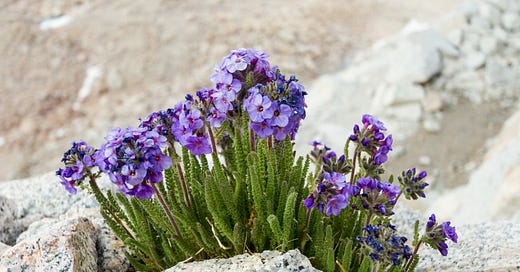“The greatest glory in living lies not in never falling, but in rising every time we fall.” ― Nelson Mandela
“Promise me you’ll always remember: You’re braver than you believe, and stronger than you seem, and smarter than you think.” Christopher Robin to Pooh (by A. A. Milne)
My dictionary tells me that resilience means “the capacity to recover quickly from difficulties.” In designing buildings and other structures for resilience, what’s desired is a structure that has “the ability to absorb or avoid damage without suffering complete failure.” Psychologically, resilience is the ability of an individual to adapt successfully to stress and adversity, for example, to health problems, relationship difficulties, financial problems.
I could think of a dozen ways in which being more resilient helps foster our thriving. When we are feeling fearful or hopeless, when we’re suffering from despair, it’s harder to muster the energy and focus to tend to our relationships to others, or to work for change in the world. As I found when I researched neuroscience and ethics, one natural reaction to fear is that our brain’s ability to recognize people as people is suppressed. So – being able to recover more quickly from painful, threatening, or difficult situations will make it easier for us to make ethical choices that respect the dignity and worth of others.
Kendra Cherry, writing on psychology for About.com, has an interesting article on 10 Ways to Be More Resilient. For her first prescription, she includes “find a sense of purpose in your life.” That turns the relationship of resilience and ethical living around: finding ways to live more ethically, with purpose, can help us become more resilient. She also includes having goals, especially to deal with the problems we’re facing, and taking steps to solve those problems, as ways to become more resilient.
She gives as an example Candace Lightner, who founded Mothers Against Drunk Driving (MADD) after her daughter was killed by a drunk driver. Lightner didn’t just find a way to solve her immediate stress – after all, her daughter could not come back to life – but found a way to address the systemic problem behind what was causing her pain.
So, while Cherry’s article doesn’t explicitly say so, the ways we can develop resilience include addressing not just our immediate situation, but also the systemic causes of such situations. Dealing with discrimination at work? Beyond efforts to address that individual case, I’d suggest that if you also spend some time working on the larger, deeper issues, your own resilience will strengthen, you’ll be better able to handle your own individual situation, and your long-term resilience and ability to act more ethically in the world will all be increased.
So think of resilience and purpose/problem-solving as a self-reinforcing circle, and don’t limit yourself to just solving the individual situation. And, picking up on Kendra Cherry’s other suggestions for increasing resilience, do it together – that’s why we have progressive religious communities, to provide some moral support to each other. Celebrate even small successes among the challenges and setbacks. Develop your skills – and again, a progressive religious community can be a place to learn skills, to take different kinds of responsibility, and to widen what you can do well.
Becoming a people of resilience, as a community: how do we individually and collectively learn to weather our storms by bending rather than breaking, by leaning on each other instead of trying to just go it alone, by adapting and changing to meet new environments, by focusing on problem-solving and purpose to create a world where we and others face fewer stresses?
More food for thought on resilience :
“Although the world is full of suffering, it is also full of the overcoming of it.” – Helen Keller
“You got to know when to hold ‘em, know when to fold ‘em, know when to walk away, and when to run…” – Kenny Rogers
“It’s not the load that breaks you down, it’s the way you carry it.” – Lena Horne
From Elders of the Hopi Nation: “At this time in history, we are to take nothing personally, least of all ourselves, for the moment we do, our spiritual growth and journey come to a halt. The time of the lone wolf is over. Gather yourselves.”
“You drown not by falling into a river but by staying submerged in it.” – Paul Coehlo
“Human spirit is the ability to face the uncertainty of the future with curiosity and optimism. It is the belief that problems can be solved, differences resolved. It is a type of confidence. And it is fragile.” – Bernard Beckett



